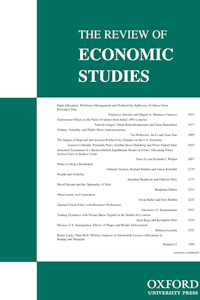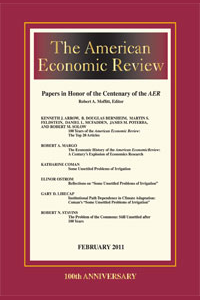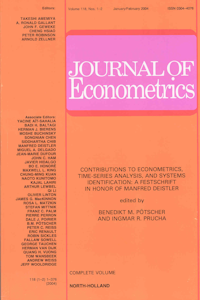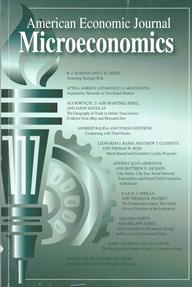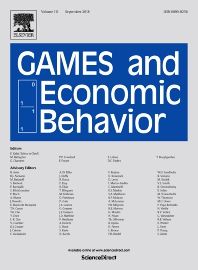
Leung, B. T. K.
Limited Cognitive Ability and Selective Information Processing
Games and Economic Behavior
Vol. 120 pp. 345-369 (2020)
Abstract: This paper studies the information processing behavior of a decision maker (DM) who can only process a subset of all information he receives: before taking an action, the DM receives sequentially a number of signals and decides whether to process or ignore each of them as it is received. The model generates an information processing behavior consistent with that documented in the psychological literature: first, the DM chooses to process signals that are strong; second, his processing strategy exhibits confirmation bias if he has a strong prior belief; third, he tends to process signals that suggest favorable outcomes (wishful thinking). As an application I analyze how the Internet and the induced change in information availability affects the processing behavior of the DM. I show that providing more/better information to the DM could strengthen his confirming bias.
Keywords: Limited ability, Information overload, Information avoidance, Confirmation bias, Wishful thinking, Polarization
JEL Codes: D83, D90
Author links:
Publisher's Link: https://doi.org/10.1016/j.geb.2020.01.005 ![]()
Cambridge Working Paper in Economics Version of Paper: Limited Cognitive Ability and Selective Information Processing, Leung, B. T. K., (2018)

